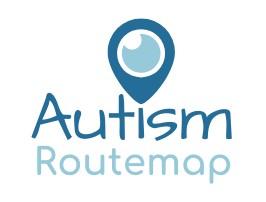A simple tweak that makes all the difference to your communication

A few years back, my husband and I went to France with some friends for a long weekend break. On our last day, we took a leisurely drive to Monet’s Garden in Giverny to see the place that inspired so many of his beautiful paintings. We were not disappointed. Wandering through the flower-filled garden left us all feeling like we were walking on air. But that inner tranquillity was short lived …
When we later stopped for petrol, we found an eerily quiet station - apparently the staff were also enjoying the bank holiday weekend. The fumes in our tank weren’t going to get us home. Thankfully, the heavens smiled on us and we soon found another station, this time with actual people selling actual petrol. We breathed a collective sigh of relief but …
The smiles and laughter didn't last. There was a new problem. We’d forgotten about daylight saving time. The clocks had gone forwards and it was an hour later than we thought.
A helicopter would have been preferable at this stage, but our only option was to drive the car (now happily filled with petrol) at lightning speed to the ferry. For the second time that day, cheerful chatter was lost to a tense silence.
To be fair, our driver did a remarkable job, but this was no James Bond film. As we screeched into the departure area, our hearts sank. There in front of us … was the ferry sailing off into the distance.
What made this all the more perturbing, was that we had booked the last ferry home. Another problem, besides that of being temporarily homeless, was that our friend was starting a new job the next morning. In London. Across the channel.
Assumptions. We make them all the time. On our departure day, we assumed the petrol station would be open. We assumed we would have enough time for sight-seeing. We assumed that clocks don’t suddenly change.
Making assumptions is an energy efficient way to live. It’s exhausting (and usually impossible) to be mindful of all the details in everyday situations. So we assume lots of things even without actual evidence. Most of the time, this works in our favour – except when it doesn’t.
Many autistic people prefer to live with a greater level of certainty. Clients often tell me how much they dislike “not knowing” what is going to happen. One lady told how, before going on holiday, she goes to great lengths to plan ahead. She checks out all the exact locations, menus and prices of restaurants and tourist spots before they leave home. Nothing is left to chance and no assumptions are made.
When it comes to communication, neurotypical people often assume that the person they're talking to knows what they mean. When you think about it, “Set the table for dinner” actually means, “Put all the knives, forks, spoons, plates, serviettes, glasses, water, salt and pepper on the table”. The autistic child who only puts out the plates is not being deliberately difficult. They genuinely didn’t know what was actually meant.
The neurotypical response to the above scenario is usually one of frustration. What was being asked seems so obvious. Except, it isn’t when you're talking to someone who relies on specific details.
The language we use in everyday communication is filled with implied meaning. But autistic people often tell me that they don’t always know what people mean - only what they say. This applies even to intelligent, articulate, talented and capable people.
Take the statement, “we could go for a bike ride on Sunday”. This kind of language can be confusing. Is it a suggestion, a request or a statement of possibility? Asking your autistic partner to buy cereal may lead to the question, “Which cereal?” Even though you’ve been eating the same cereal for months, confusion occurs because there are multiple options on the supermarket shelves.
This week, I had the pleasure of reading “Is that clear?” by Zanne Gaynor, Kathryn Alevizos and Joe Butler. It’s a quick read packed full of examples of the ways in which communication can be compromised along with some great suggestions for communicating more clearly.
As always, the starting place for change is awareness. Understanding where people are coming from is a good foundation to build on. Different thinking styles don’t have to result in communication breakdown. Neurotypical people can aim for better clarity. And autistic people can ask for it!
And just so you know – our story had a happy ending. Despite booking the last ferry, we discovered that there was one more boat leaving for the UK. A faster one as it turned out. Steaming across the channel, we were more than a little pleased to pass our original ferry on the way and arrive home earlier than expected!
To the power of clarity!
Linda Philips
MSc. Human Communication
Autism Routemap supports autistic and neurodivergent people with coaching and training to improve communication, people skills and emotional well-being. Interested in knowing how we can help?
Contact [email protected] or book a free Turning Point call here.

